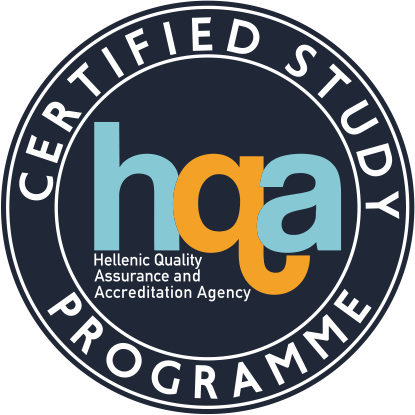Nutrition Through the Lifecycle
Undergraduate level | 4th semester | Compulsory Unit | ΙΑ0203
Credit Units ECTS: 5
Teaching Hours (Weekly): 3
Course Type: General Background
Prequisites: Basic Concepts of Nutrition
Teaching and Examination Language: Greek
For Erasmus students study course and exams are offered in English.

Course Material
Nutritional Assessment and Recommendations, Body Composition, Breastfeeding, Maternal and Fetal Nutrition, Infant Nutrition, Nutrition in Childhood and Adolescence, Nutrition and the Elderly, Diet and the Menopause, Diet and the Menstrual Cycle.
Learning Outcomes
The unit will provide an overview of nutritional biochemistry as a basis for understanding nutrition, growth and development. Emphasis will be given on the role of nutrition in the promotion of good health at every stage of the life cycle.
At the end of this unit students will be able to:
- demonstrate a clear understanding of the relationship between cellular nutrition, energy balance and disorders related to body composition,
- devise suitable regimens and strategies for the assessment of nutritional status of different groups and individuals,
- evaluate the role of nutrition in the promotion of health at every stage of lifecycle, identify obstacles and develop strategies to overcome difficulties in treating the nutritional requirements of these groups.
General Skills
- Autonomous work
- Group work
- Planning and managing small projects
- Be critical and self-critical
- Promotion of creative & inductive thinking
- Searching, analyzing, and composing data and evidence through the use of necessary information.
- Appreciating and respecting different cultures
Learning and Teaching Techniques - Evaluation
Teaching Methods: Face to face | Support of learning through the use of asynchronous tele-education platform (e-class).
Use of ICT: Use of ICTs during teaching, use of asynchronous tele-education platform for distant education and communication with postgraduate students, contact through e-mail.
Course Organization:
| Activity | Semester Work Load |
|---|---|
| Lectures | 33 |
| Small group exercises in the classroom | 6 |
| Individual/non-guided studying | 60 |
| Bibliography studying and analyzing (both in Greek and in the English Language) | 26 |
| Total | 125 |
Assessment Methods:
The unit grade will be based on a final written exam (consisting of essay type questions and a specifically designed case study)
The assessment method is described to the students during the first teacher-student meeting, and it is displayed in the e-class website throughout the semester.
Suggested Bibliography
- Worthington BS & Williams SR (2000). Nutrition Throughout the Life Cycle 4th Ed McGraw- Hill.
- Barasi Mary E (1997). Human Nutrition (A Health Perspective) ARNOLD
- Brown Judith E (1999). Nutrition Now 2nd Ed. West /Wadsworth.
- Mann Jim & Truswell Steward (2000). Essentials of Human Nutrition. Oxford University Press.
- Rolfes Rady Sharon, DeBruyne Linda Kelly, Whitney Eleanor (1998). Life Span Nutrition 2nd Ed. West / Wadsworth.
- Garrow, J.S, James, W.P.T.& Ralph, A. (2000). Human Nutrition and Dietetics, 10th edition, Churchill Livingstone.
- Thomas, B. (2001). Manual of Dietetic Practice,3rd ed., Blackwell Science.
- Department of Health (1991). Dietary Reference Values for Food Energy and Nutrients for the United Kingdom. Report on Health and Social Subjects No. 41. HMSO.
Scientific Journals
- Journal of Nutrition & Dietetics
- Maternal & Child Nutrition
- Journal of Adolescent Health
- Journal of Nutrition Education & Behavior



